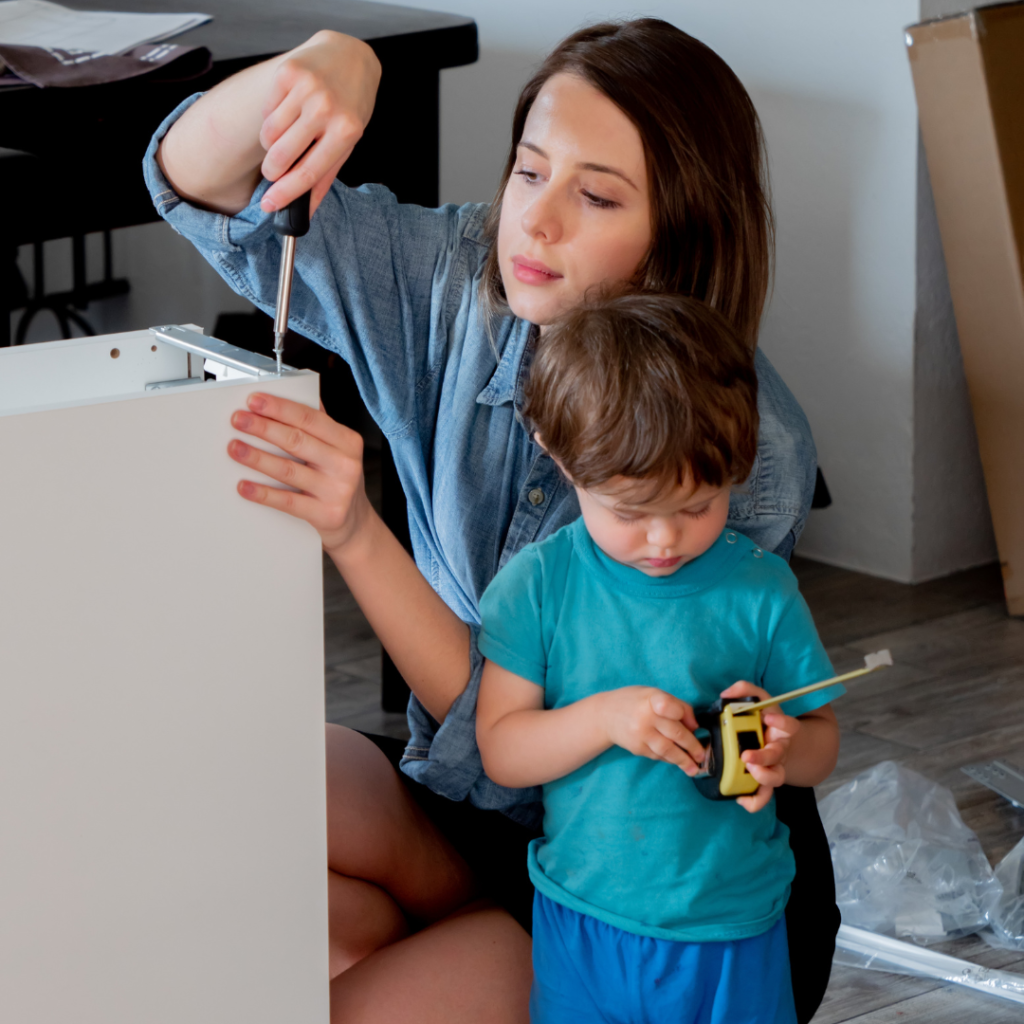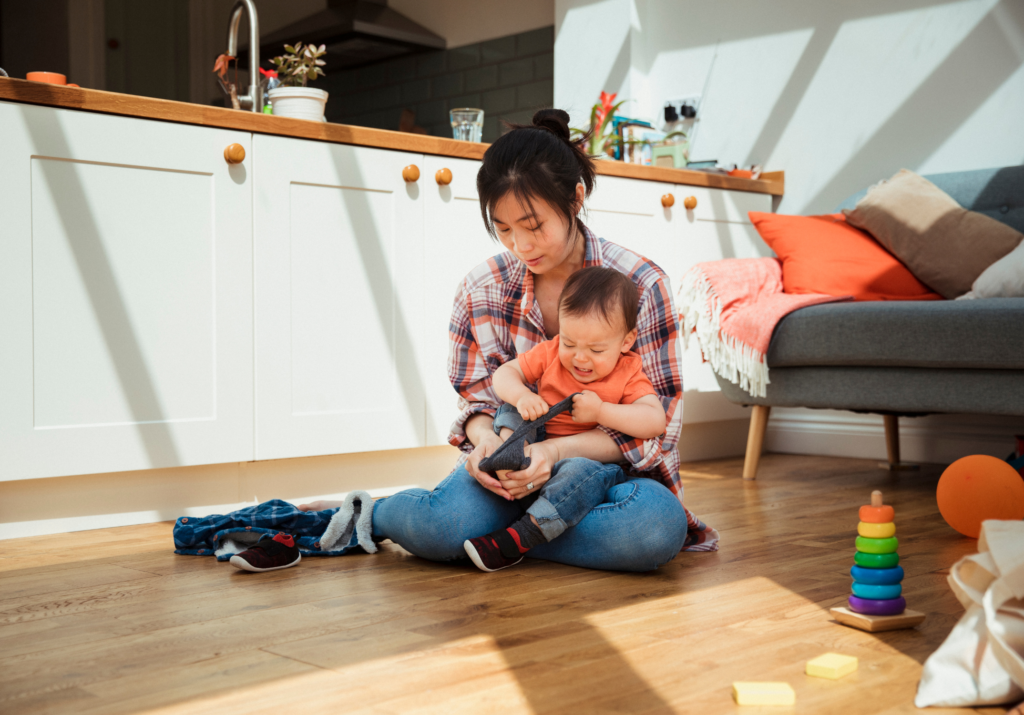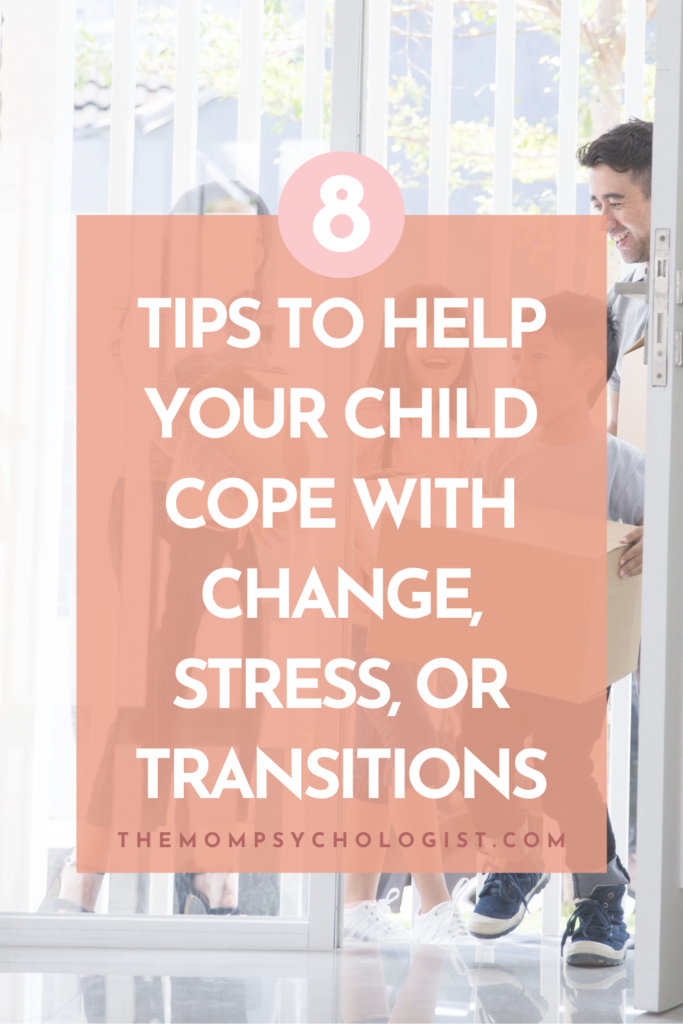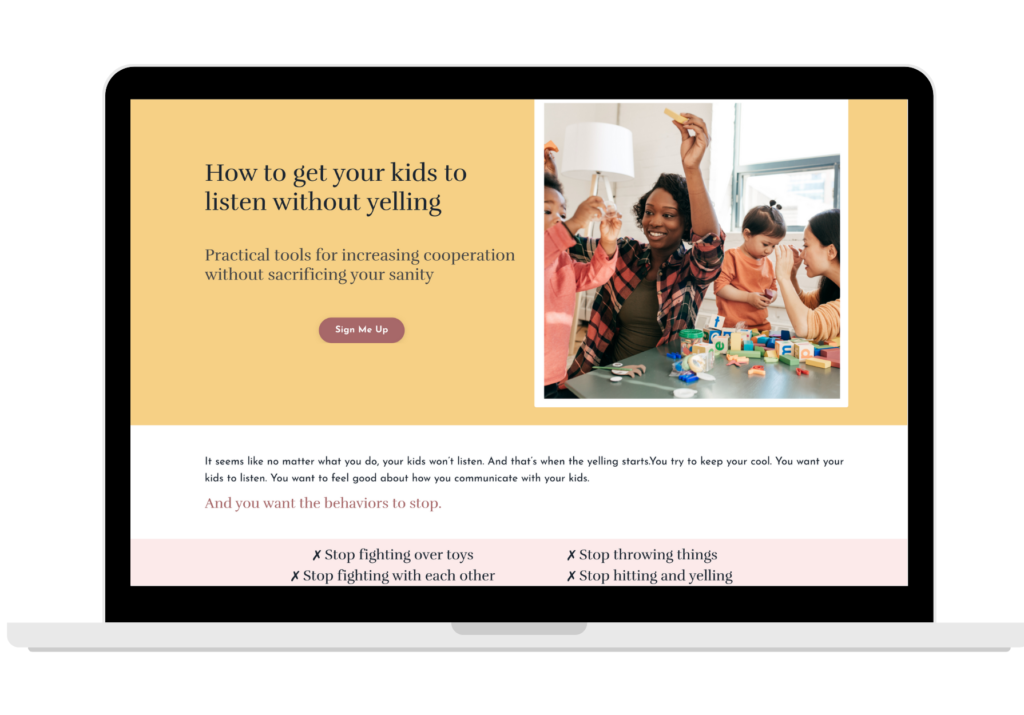watch now!
A place where I discuss all things related to toddlers and motherhood!
Subscribe to my Youtube channel
As a clinical psychologist, published author, and mother to two cheeky young children, I get it. I’ve spent YEARS researching and filtering through the noise online, so you don’t have to.
PARENTING TIPS
POTTY TRAINING
ANTIRACISM
PLAY
Blog Topics
SIBLING RIVALRY
SCREEN TIME
TANTRUMS
DISCIPLINE
Hi I'm Dr. Jazmine
8 Tips to Help Your Child Cope with Change, Stress, or Transitions
topics:
Change and transitions can make us all feel stressed, even if it’s an exciting change, like starting a new school. It can still bring a lot of fears and anxiety. So it’s important to understand how you can best support your child as they deal with and cope with change. Let me share with you 8 tips I have to help your child or toddler deal with change, stress, or transitions.

#1: Process and explore your own anxiety around the change or transition.
Try your best to feel confident about the change or transition. And that comes with preparing ourselves for the change and then preparing our little ones for the change. But it’s so important to realize that little ones can sense if we’re feeling nervous, anxious, or scared about change.
If they sense that we’re nervous, they’re going to walk into the new situation feeling afraid too. And we don’t mean for it to be this way, but it’s important to realize that and manage it. It’s okay for you to feel nervous, but do your best to not present in a way that transfers to your child.
With any change – whether it’s a new sibling, a new job, a new work schedule, a new school, or a new home – make sure you process out your feelings, your anxieties, your worries, your sadness, and grief because of the change and then help your child do the same.
It’s also important to validate that it’s okay to be nervous.
You can tell them…
- “I’m excited. You’re excited. You’re looking forward to this.”
- “It’s okay to be nervous, and Mommy’s a little nervous too, but this is how I’m going to work through my feelings.”
- “I’m feeling a little nervous also. It’s a new place, new people. There’s a lot of change, but this is how I’m going to get through this.”
- “I get it, change is scary. Change is hard. Let’s talk about it. Let’s keep this conversation going. I want to hear how you feel, and it’s okay.”

You want your child to understand it’s okay to feel whatever they’re feeling, but it’s important that we talk about it to help our children deal with the new transition or change.
#2: Start the conversation early with your child about the change or transition.
As soon as you sense change is on the horizon, you want to start making plans to discuss it with your child. You want to give them time to mentally prepare for the change.
Depending on the situation, we don’t always have this luxury, but when you do, take it.

#3: Invite your child to ask questions about the change or transition.
And when they ask questions, try your best to answer them openly and honestly. And if you don’t know the answer to their questions, say something like…
- “Wow, that’s such a great question. I’m so glad you asked. Let’s go find the answer together.”
- “You know what? I’m going to do some research. And as soon as I know, as soon as I get some more information, you’re going to be the first person I tell.”
#4: Let your child know what to expect with the change.
So along the same lines of starting that conversation and answering their questions, you want to walk them through the process. For example, if your child is starting a new school, you want to let them know what to expect in terms of the new routine, their teacher, and the new environment.
Sometimes we don’t have all the details and that’s okay, but tell them as much as you can piece together to help your child cope with the transition. What you’re doing is warming them up and letting them know what to expect about whatever change that is.
So for the school example, maybe you’re able to give them a tour. Maybe drive there and drive back a couple of times. Tell them…
- “Let’s go visit your new school. You’re starting soon. Yay! This is the route we’re going to take to school.”

If you’re going to move, then you want to let them know what to expect when it comes to your new home, where it is, and what it’s going to look like. You can also look at pictures together and discuss things like:
- New things to do in the new city
- Fun things they can do in your new home (e.g., gardening, taking walks, playing in the backyard, etc.)
- How they might want to decorate their new room and/or playroom
#5: Read children’s books about change or transition.

Whatever topic it is – getting a new sibling, moving to a new place, or even the death of a loved one – you want to open up the conversation through children’s books.
Children’s books are one of my favorite ways to help children process things and keep that conversation open and ongoing to help them feel like they’re less alone. Children’s books also help to normalize their feelings and identify with the character. They hopefully can see themselves in that character. A good children’s book will walk them through how to cope with any feelings that could come up, which is a great teaching tool.
I have a lot of book recommendations on various topics for you here. I also have a book review for toddler anger management you can check out.

#6: Get your child involved with the change or transition as much as possible.
You want to get your child involved. It helps kids feel mentally prepared and more in control of their environment when they’re an active participant in the change. This will help children feel mentally prepared when they feel like they’re an active participant. It’s not something that’s happening to them, but they’re a part of it.
So if it’s starting a new school, maybe they can…
- Get involved in packing up their new backpack with all kinds of things
- Add a comfort item into their backpack that’s just for school
- Make a photo album of their favorite photos they can look at school if they want to

If you’re moving to a new home, maybe they can help…
- Pick out some new furniture
- Decorate a part of the home
- Set up the new garden
Whatever relates to the change that they’re experiencing, try to give them some agency over the situation by inviting them to participate. Be sure not to force them to participate. This should be an open invitation and should be seen as fun to your child.
You want to ask yourself…
- “How can I get them involved? What might they enjoy doing?”
- “How can I keep them involved so that this is happening with them, not to them?”

#7: Stick to your routine as much as possible.
I know when there is change happening, it is very easy for our routines to slip up. We’re doing the best we can, and we might be in survival mode.
But I want as much as you can stick to those routines because that helps your child feel safe since they can predict what’s happening in their environment. They’re less likely to feel out of control if there is some predictability and stability in their environment.
The two routines you want to try to stick to as much as possible are their sleep schedule and eating schedule. You want to keep these as consistent as possible. Your screen routine is another great routine to keep consistent if you can.
Of course, things happen, and that’s okay. We’re stressed often when we’re going through changes. But keep these routines in mind, especially if you are experiencing a lot of behavioral issues, big feelings, aggressions, or not listening. You want to ask yourself…
- “How are the routines? Can I be more consistent in a certain area?”
- “How have I been doing in terms of keeping their environment stable and predictable?”
- “Is my child getting enough sleep and consistent, healthy meals?”
And so you want to keep their routines as predictable as possible to help lessen these behavioral issues from transitions and changes.

#8: Expect your child to have big feelings and grieve the loss of what has changed.
Even if it’s an exciting change, like welcoming a new sibling, it’s still stressful.
Reflect on how you are feeling right now with a change, or how you felt in the past when there was change. It was exciting. It was new. You were eager, and you were in anticipation, but you were also nervous or scared. Or you didn’t know what your new life would look like with all that change.
That’s how little ones feel multiplied by 10.

They don’t have all the skills that adults have to process change and work through it because their brains are still developing. And so I want you to expect your child will have big feelings, that they’ll push back, that they’ll grieve, or that they’ll struggle in some way.
Remember, behavior is just their form of communication.

If your child is struggling with behavioral issues, know they’re doing the best that they can to communicate to you that something’s not right. They might be feeling anxious or scared or nervous or tense or unsure of what the future is going to hold and what it’s all going to look like. So as much as you can, validate that and accept it. Tell them…
- “It’s okay to feel nervous. And it’s going to take some time to adjust, and that’s okay. I’m right by your side through this.”
We can do everything we can to prepare our children for change. But then, we also need to acknowledge that sometimes our child will still struggle emotionally, and that’s okay.
It doesn’t mean we’re on the wrong track. It doesn’t mean that we’re doing something wrong or that we need to fix the situation. It means that they need more time to express their feelings, adjust to their new situation, and grieve their old life.
Need more help with behaviors? Check out my free discipline workshop, where we work through discipline and setting consequences with intention and respect.

One of the key points I cover is how to help calm your child’s intense feelings and teach emotional intelligence. So if your child is struggling with coping with change, my course can help you!
Rooting for you,
Dr. Jazmine
Love this? Don’t lose it! Click below and save it to your Pinterest!

Leave a Reply Cancel reply
Copyright The Mom Psychologist® 2025
grab my free script pack!
explore
work with me
information
About
Blog
YouTube
Podcast
Discipline Course
TMP University (Coaching)
Privacy Policy
Terms of Use
Product Disclaimer
Contact
TMP Times (Newsletter)
